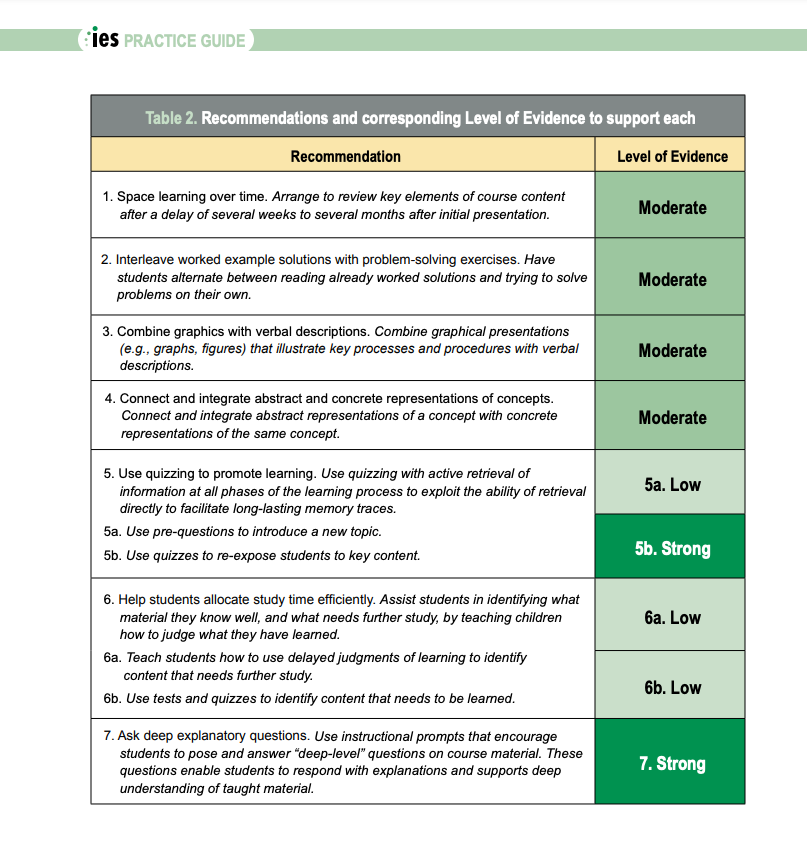In 2007, the National Center for Education Research, Institute of Education Sciences released their report titled Organizing Instruction and Study to Improve Student Learning: A Practice Guide. It was created as a mechanism to communicate evidence-based advice to teachers that aggregates and summarizes research into a clear, recommendation-focused format. While the format is widely known in health care, it was one of the first of its kind for education.
There are seven key recommendations that they summarized, along with a “level of evidence” rating to indicate how strongly the research backs those recommendations:

There are two key recommendations that support the concept that students should take spelling tests:
- Recommendation 5b: Use quizzes to re-expose students to key content, with a level of evidence rating of Strong, and
- Recommendation 1: Space learning over time, with a level of evidence rating of Moderate.
Let’s review these two recommendations:
Recommendation 5b: Use quizzes to re-expose students to key content
Level of evidence: Strong
There are numerous sub-findings here:
- Researchers have found that having students take a test is almost always a more potent learning device than having students spend additional time studying the target material. “The act of recalling information from memory helps to cement the information to memory and thereby reduces forgetting.” This means that the most powerful device for learning material is having to prepare for, then take, a test or quiz.1
- Several studies have also shown that testing not only enhances learning — it also reduces the rate at which information is forgotten.2
- Teachers should grade spelling practice tests (or use a tool like Spelling Test Buddy to assist in the classroom), because errors made during practice tests will reappear on subsequent tests.
Recommendation 1: Space learning over time
Level of evidence: Moderate
- Make sure that important curriculum content is reviewed at least several weeks, and ideally several months, after the time that it was first encountered by the students. A delayed review typically has a large positive impact on the amount of information that is remembered much later, vs. a shorter review of e.g. 1 week.3
- Key spelling words should be quizzed not just once that week, but rather, spaced out and quizzed again several weeks later. To greatly improve study and recall of the most challenging words, those words should be aggregated together into a single “unit” or “midterm” test and given to the student 4-16 weeks after the first problems appeared.4
- Even though students and teachers may be discouraged by seeing the same problems re-appear when they re-review missed spelling words 4-16 weeks later, research shows that this “reawakening” of the knowledge that the students originally learned is both more easily accomplished and also results in a marked reduction in the rate of subsequent forgetting.5
I hope that you will read the whole report, and find ways to accommodate its recommendations into your daily teaching.
And if you are interested in how Spelling Test Buddy can assist you in bringing scienced-based spelling practice to your classroom, please drop me a note!
References: